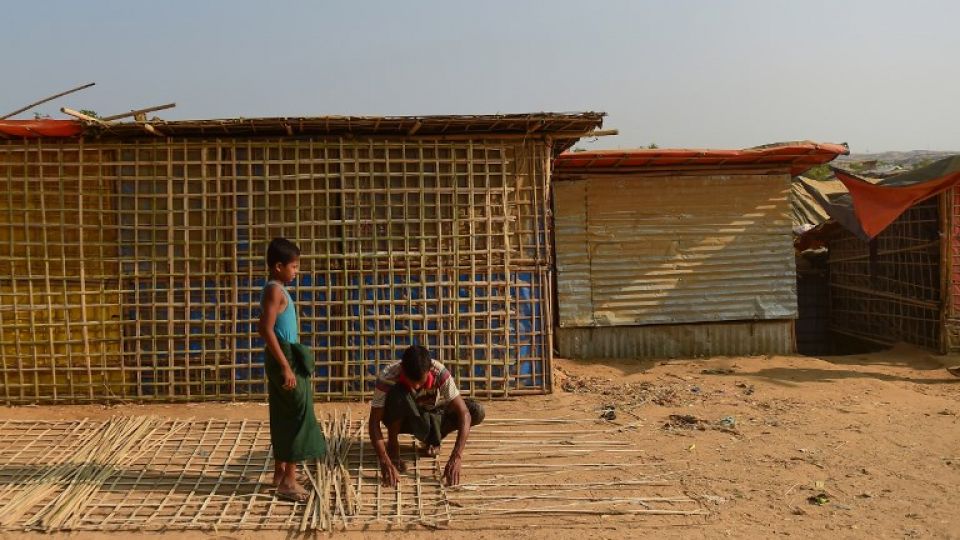May 17, 2018
Nearly six months have passed since the signing of the Rohingya repatriation deal, but Myanmar is yet to take back a single of the refugees from Bangladesh.
The country verified the residency of only 878 Rohingyas out of 8,032 who were put on a list by Bangladesh three months ago for repatriation.
As per the repatriation deal signed between the two countries on November 23 last year, Myanmar was supposed to start taking back its nationals within two months.
Against such a backdrop, the Joint Working Group (JWG) holds its second meeting in Dhaka today to review the progress of the repatriation of some 800,000 Rohingyas, who fled atrocities in Myanmar’s Rakhine State since October 2016. A Myanmar delegation is already in Dhaka to join the meeting.
Bangladesh Foreign Secretary Shahidul Haque and Myanmar Permanent Secretary Myint Thu will lead their respective sides, consisting of 15 officials each, to the meeting. The officials are responsible for overseeing the repatriation process.
The first JWG meeting was held in Nay Pyi Daw, Myanmar on January 15-16.
As per the agreement, if the JWG members disagreed on any issue, they would refer it to their respective governments and resolve the dispute within three months.
Tareque Muhammad, director general (Southeast Asia) at the Bangladesh foreign ministry, said: “We will emphasise on quick repatriation and creating a conducive environment [in Rakhine].”
The UN says the conditions in Rakhine are not conducive to a safe, dignified and sustainable return of the refugees. The Rohingyas are also of the same opinion. They want that their citizenship is granted, their security in Rakhine is ensured under UN presence and their land is returned.
Surat Alam, a Rohingya community leader at Kutupalong camp in Cox’s Bazar, said they wanted to return to their homes in Maundaw at the earliest, but not to the camps. Before repatriating Rohingyas from Bangladesh, Myanmar should ensure that those now living in Rakhine camps have returned to their homes, he added.
The camps in Sittwe, the capital of Rakhine, are now home to around one lakh Rohingyas who have been languishing there since June 2012 after they had fled their homes in the face of sectarian violence.
“We want citizenship, not NVCs that Myanmar wants to give us. We want to be recognised as Rohingya,” he told this correspondent at Kutupalong camp on Friday.
Accepting NVCs (national verification card) would mean that Myanmar would treat the Rohingyas as illegal Bangalee migrants, Alam said.
Alam’s desire still remains unmet as Myanmar has done little until now on making the Rohingyas’ return sustainable, although it promptly entered the repatriation deal with Bangladesh amid global pressure.
Myanmar attached a condition to the repatriation that Bangladesh would have to prepare a family-wise list of Rohingyas and they would have to go through a verification of residency. Bangladesh agreed to the condition, but experts and Rohingyas said the purpose of verification was to complicate the repatriation process.
The Myanmar government, on the other hand, has bulldozed the Rohingya houses that had been burnt during atrocities in Rakhine.
International relations experts say Myanmar has to amend its 1982 citizenship law that stripped the Rohingyas of citizenship. Myanmar, which is accused of carrying out ethnic cleansing and genocide against the Rohingya, has not paid any heed to such demands.
It has not yet granted unfettered access to the UN and international aid agencies, UN Fact-Finding Mission, human rights activists or independent journalists to Rakhine.
Myanmar also refused to sign a tripartite agreement with the UN Refugee Agency (UNHCR) and Bangladesh as expected by the UN agency. On April 13, Bangladesh inked an agreement with UNHCR on the repatriation.
Myanmar later agreed to sign a deal with UNDP and UNHCR, but it is yet to do so.
Asif Munier, an independent researcher on migration and refugees, says all the actions by Myanmar suggest that the country is not sincere about the repatriation. However, allowing the UN Security Council to visit Rakhine was a step forward, he added.
Security Council members, who visited Bangladesh and Myanmar from April 28 to May 2, urged Myanmar to step up its efforts to create conditions conducive to safe, voluntary and dignified return of Rohingyas and internally displaced people (in camps) to their homes in Rakhine.
They also called upon Myanmar to address the root causes of the crisis by implementing Rakhine Advisory Commission recommendations, including those related to human rights, citizenship, poverty alleviation and development, the UNSC said in a statement on May 9.
Asif said Bangladesh in the JWG meeting should raise the issue of ensuring sustainable repatriation and implementation of the Rakhine Advisory Commission recommendations.
He said hundreds of thousands of Rohingyas were repatriated from Bangladesh in the past, but many of them fled here again.
“This time the repatriation must be durable. Bangladesh and the global community must work for this because Bangladesh has been facing huge problems for sheltering Rohingyas for decades,” Asif told this correspondent.
(This article was written by Porimol Palma)


